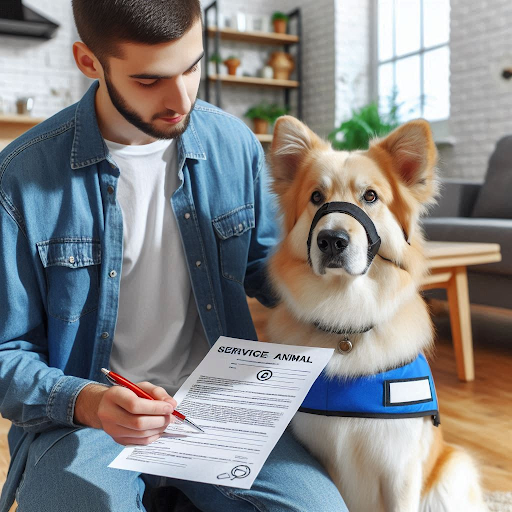Understanding the legal requirements for accommodating assistance animals is essential for compliance and tenant satisfaction. Here’s a comprehensive guide to ensure you meet the necessary criteria:
1. Legal Requirements
Familiarize yourself with federal and state laws that govern assistance animals. Key regulations include:
Fair Housing Act (FHA): Requires landlords to make reasonable accommodations for assistance animals in rental properties.
Americans with Disabilities Act (ADA): Defines the rights of individuals with disabilities and their need for assistance animals in public places.
Understanding these laws helps ensure you comply with legal obligations and provide fair treatment for tenants with assistance animals.
2. Documentation
Tenants may request reasonable accommodations for assistance animals, and you are allowed to request documentation. Consider:
Disability Verification: You may ask for documentation from a healthcare provider confirming the tenant’s disability.
Animal’s Role: Request information on how the animal assists with the tenant’s disability, but avoid asking for detailed medical records.
Documentation helps verify the legitimacy of the accommodation request while respecting tenant privacy.
3. No Pet Policies
Be aware that assistance animals are exempt from no-pet policies. Key points include:
Policy Exceptions: Even if your property has a no-pet policy, it does not apply to assistance animals, which must be allowed.
Reasonable Accommodation: Ensure that assistance animals are accommodated regardless of your general pet policy.
Understanding this exception is crucial for complying with legal requirements and avoiding discrimination claims.
4. Responsibilities
While tenants are responsible for their assistance animals, certain responsibilities must be upheld:
Animal Behavior: Ensure that the assistance animal is well-behaved and does not cause damage or disruption to the property or other tenants.
Tenant’s Responsibility: Tenants are accountable for their animal’s behavior and any damages caused.
Maintaining clear expectations helps manage the impact of assistance animals on your property and other residents.
5. Communication
Clear communication about your policies and procedures regarding assistance animals is essential. Include:
Policy Explanation: Inform tenants about your policies on assistance animals and any procedures for requesting accommodations.
Conflict Resolution: Provide a process for addressing any issues or complaints related to assistance animals.
Effective communication helps prevent misunderstandings and ensures that both tenants and property managers understand their rights and responsibilities.
Ensure Compliance and Fair Treatment
By understanding and following these criteria, you can ensure a fair and legal approach to accommodating assistance animals. Have questions about managing assistance animals? Contact Pioneer Property Management for expert advice and assistance with legal compliance and tenant accommodations!


